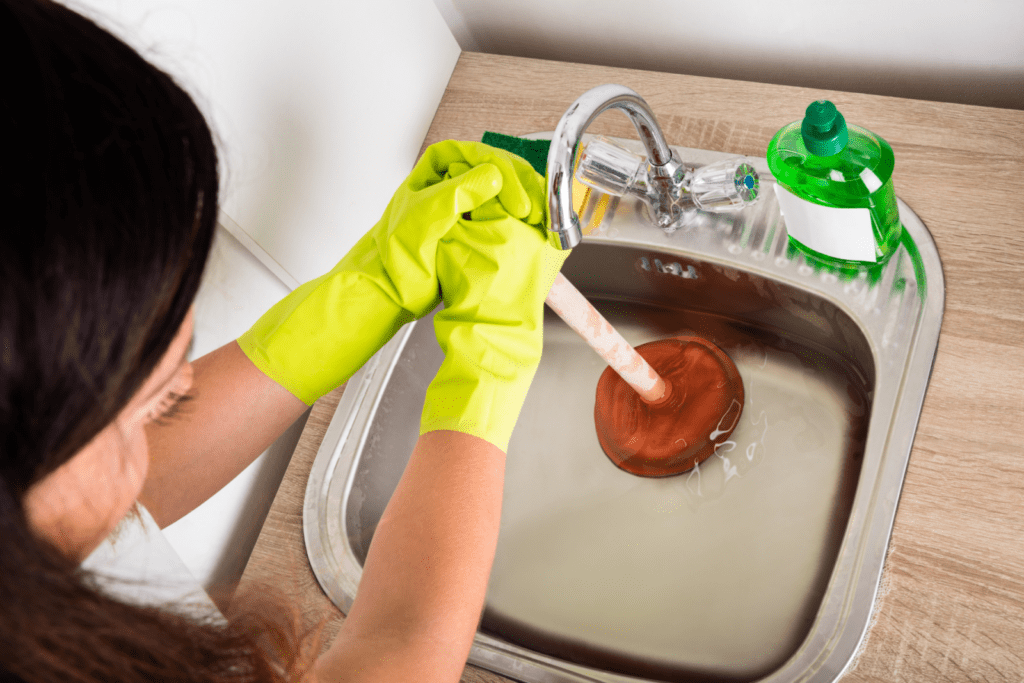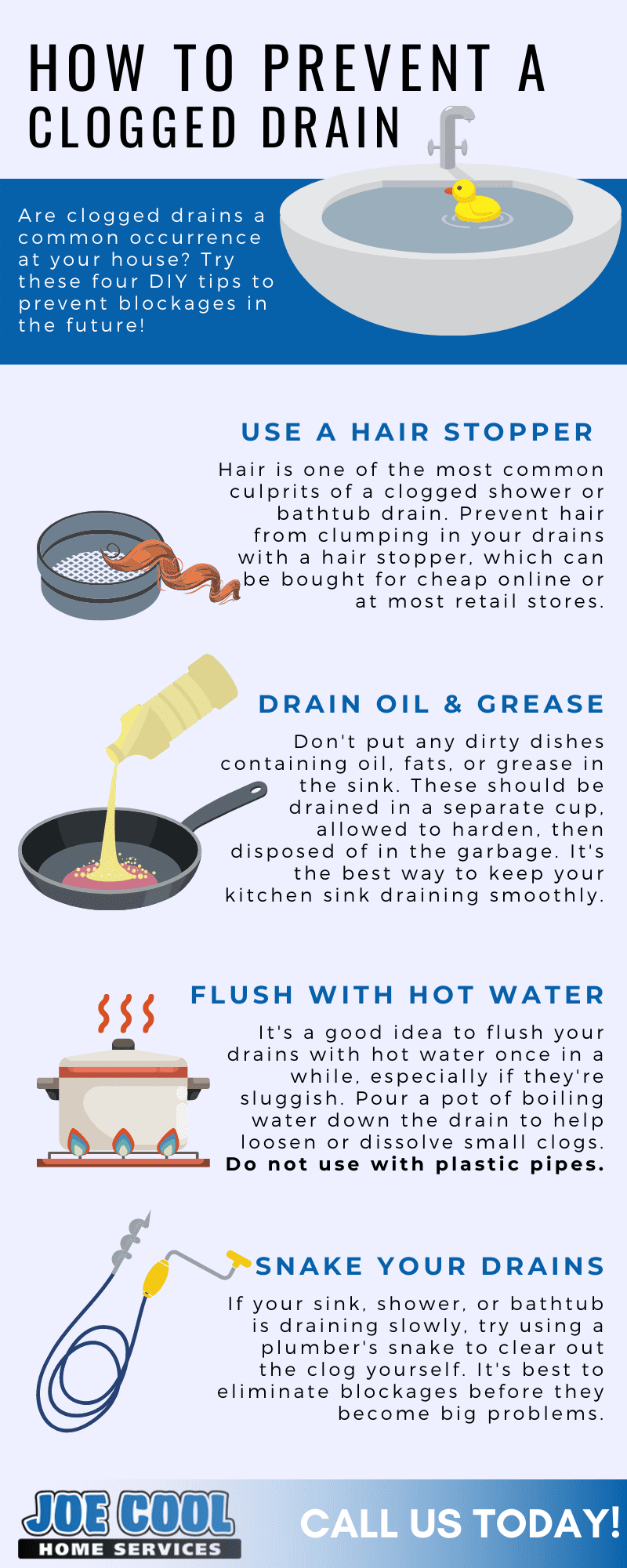Is water starting to gurgle before flowing down your kitchen or bathroom drains? Do you notice slower-than-usual water flow through the pipes? Drain problems are often inconspicuous at first because they start off small but quickly intensify when overlooked. Let’s take a look at some of the biggest reasons why drains get clogged and how to prevent them.
1. Food Waste
Food waste is a major culprit for blocked drains, even if your sink is fitted with a garbage disposal. Try to make sure food waste like rice, vegetable peels, ground coffee, etc., are put into a separate food waste container that either goes into the trash or into a compost pile. This way, you can prevent food from slowly causing a blockage as it builds up in your drains.
Most importantly, avoid putting greasy foods and oil down the drain — these will solidify and form a layer that is nearly impenetrable. Some of the worst drain clogs we’ve seen were caused by grease and have required drain replacement services.
2. Hair
Hair is one of the biggest perpetrators of clogged drains. It does not break down easily and combines with dirt and grease or soap to form a bigger obstacle in the drain over time. The only way to really prevent hair from clogging your drains is to install drain guards. These nifty devices allow you to collect the hair and dispose of it in your regular trash, ultimately protecting your drains in the long run.
3. Baby Wipes and Sanitary Pads
Many people mistakenly assume that baby wipes and sanitary pads are flushable. The only things that should ever be flushed down your toilet include toilet paper and human waste – that’s it! Anything else that goes down the drain will fail to break down and eventually clog your drains. Baby wipes and sanitary pads, even the “flushable” kind, are meant for regular trash only.
4. Tree Roots
Tree roots can easily penetrate your pipes, especially if they find a small opening like a crack in the drain. These roots will grow larger and start to obstruct water flow, eventually causing blocked drains and even burst pipes. This is a complex job that requires professional replacement services from a trusted plumbing company.
How to Prevent Clogged Drains
Use a hair stopper
Hair is one of the most common culprits of a clogged shower or bathtub drain. Prevent hair from clumping in your drains with a hair stopper, which can be bought for cheap online or at most retail stores.
Drain oil & grease
Don’t put any dirty dishes containing oil, fats, or grease in the sink. These should be drained in a separate cup, allowed to harden, then disposed of in the garbage. It’s the best way to keep your kitchen sink draining smoothly.
Flush with hot water
It’s a good idea to flush your drains with hot water once in a while, especially if they’re sluggish. Pour a pot of boiling water down the drain to help loosen or dissolve small clogs. Do not use this method with plastic pipes.
Snake your drains
If your sink, shower or bathtub is draining slowly, try using a plumber’s snake to clear out the clog yourself. It’s best to eliminate blockages before they become big problems.
When It’s Time to Call a Professional for Clogged Drains
Sometimes even the best tips for preventing drain clogs don’t solve your clogged drain problems. To get a quote for local plumbing services in Pinellas County, FL, or greater Tampa Bay, FL, call Joe Cool today. We can also offer local AC repair and indoor air quality services, giving you a single point of contact for multiple home-related issues.


